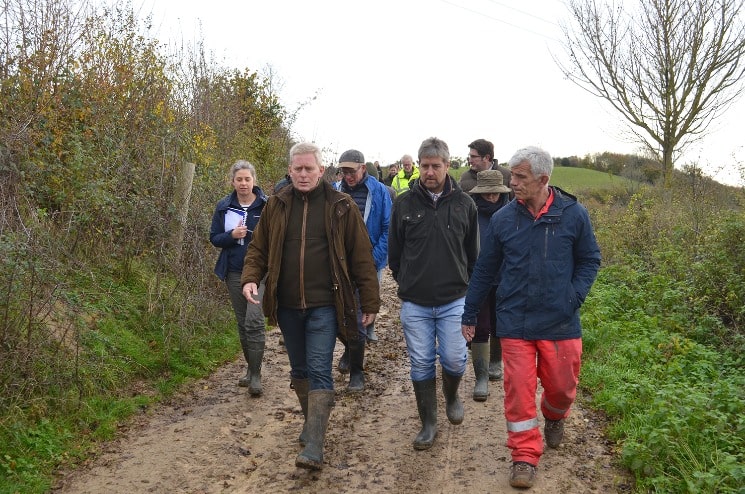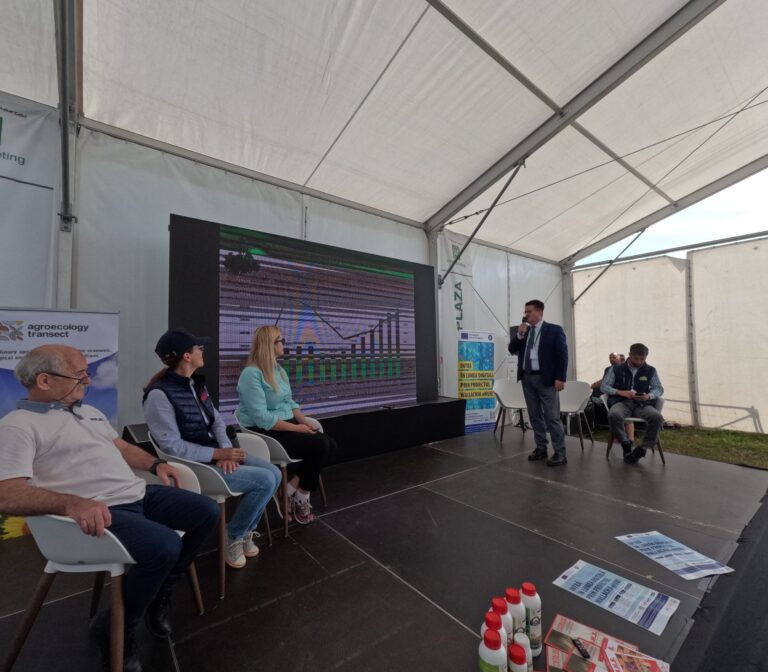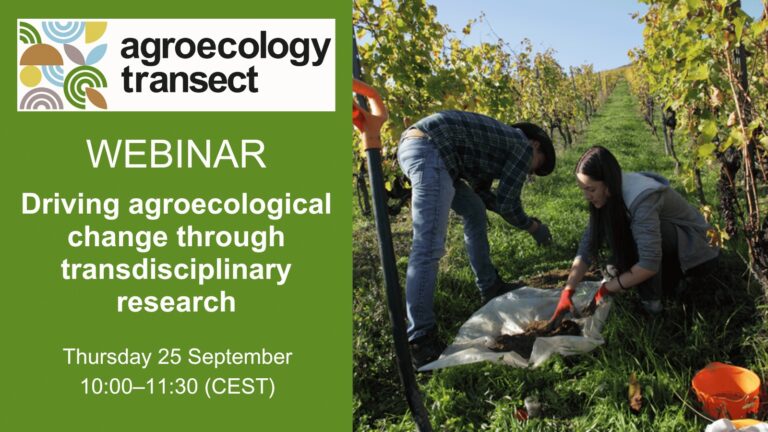📣𝑨𝒈𝒓𝒐𝒆𝒄𝒐𝒍𝒐𝒈𝒚-𝑻𝑹𝑨𝑵𝑺𝑬𝑪𝑻 𝒘𝒆𝒃𝒊𝒏𝒂𝒓 𝒄𝒐𝒎𝒊𝒏𝒈 𝒖𝒑 𝒊𝒏 𝒕𝒉𝒊𝒔 𝒎𝒐𝒏𝒕𝒉!
𝐹𝑟𝑖𝑑𝑎𝑦 23 𝐹𝑒𝑏𝑟𝑢𝑎𝑟𝑦, 2-3.30𝑝𝑚 (𝐶𝐸𝑇), 𝑂𝑛𝑙𝑖𝑛𝑒
𝑰𝒏𝒇𝒍𝒖𝒆𝒏𝒄𝒊𝒏𝒈 𝒑𝒐𝒍𝒊𝒄𝒚 𝒕𝒉𝒂𝒕 𝒘𝒊𝒍𝒍 𝒉𝒆𝒍𝒑 𝒄𝒓𝒆𝒂𝒕𝒆 𝒕𝒉𝒆 𝒓𝒊𝒈𝒉𝒕 𝒆𝒏𝒗𝒊𝒓𝒐𝒏𝒎𝒆𝒏𝒕 𝒇𝒐𝒓 𝒄𝒉𝒂𝒏𝒈𝒆 𝒊𝒔 𝒂 𝒄𝒉𝒂𝒍𝒍𝒆𝒏𝒈𝒆. 𝑯𝒐𝒘 𝒅𝒐 𝒚𝒐𝒖 𝒈𝒆𝒕 𝒕𝒐 𝒕𝒉𝒆 𝒓𝒊𝒈𝒉𝒕 𝒑𝒆𝒐𝒑𝒍𝒆 𝒊𝒏 𝒚𝒐𝒖𝒓 𝒍𝒐𝒄𝒂𝒍 𝒂𝒓𝒆𝒂, 𝒐𝒓 𝒊𝒏 𝒈𝒐𝒗𝒆𝒓𝒏𝒎𝒆𝒏𝒕, 𝒐𝒓 𝒆𝒗𝒆𝒏 𝒘𝒊𝒕𝒉𝒊𝒏 𝒕𝒉𝒆 𝑬𝒖𝒓𝒐𝒑𝒆𝒂𝒏 𝑪𝒐𝒎𝒎𝒊𝒔𝒔𝒊𝒐𝒏? 𝑰𝒕’𝒔 𝒏𝒐𝒕 𝒐𝒏𝒍𝒚 𝒂 𝒎𝒂𝒕𝒕𝒆𝒓 𝒐𝒇 𝒘𝒉𝒐, 𝒃𝒖𝒕 𝒐𝒇 𝒉𝒐𝒘, 𝒂𝒏𝒅 𝒆𝒗𝒆𝒏 𝒘𝒉𝒆𝒏?
These challenges can’t be a barrier to change – policy makers need expert-led science-backed solutions so they can generate policy that works in practice.
In this webinar, we’re delighted to bring together teams who can sketch the policy development cycle at their respective intervention levels, elaborate on key moments where science-society interventions can be effective, and discuss enabling and disabling factors that should be considered.
https://www.agroecology-transect.net/events/engaging-with-policy-makers-on-agroecology/




